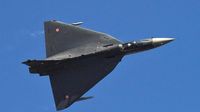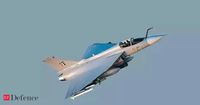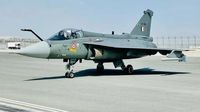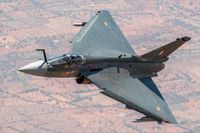General Electric (GE) Aerospace has officially delivered the first of 99 F404-IN20 engines to Hindustan Aeronautics Limited (HAL) for the Tejas Light Combat Aircraft Mk 1A fighter jet, marking a significant milestone in a project that has faced delays. This delivery, made on March 26, 2025, comes after a two-year wait that had pushed back the timeline for the Indian Air Force's (IAF) acquisition of these advanced jets.
The engines are part of a larger contract worth ₹5,375 crore, which was signed in 2021. The original plan was for deliveries to commence in March 2023, but supply chain disruptions, exacerbated by the ongoing geopolitical tensions related to the Russia-Ukraine conflict, delayed the process. GE Aerospace stated, "We were excited to deliver the first of 99 F404-IN20 engines to our valued customer Hindustan Aeronautics Limited (HAL) for the Tejas Light Combat Aircraft Mk 1A fighter jet." This sentiment reflects the company's commitment to strengthening India’s defense capabilities through advanced aviation technology.
The F404-IN20 engine, specifically designed for the Tejas, boasts the highest thrust within the F404 family, producing a maximum thrust of 19,000 lbf (85 kN) with afterburner. It incorporates cutting-edge technologies such as Full Authority Digital Engine Control (FADEC) for enhanced reliability and operational performance. GE Aerospace has a long-standing history of collaboration with India, having first partnered with the Aeronautical Development Agency in the 1980s. The F404 engine was selected for the Tejas program in 2004, marking a pivotal moment in both GE's and India's aviation history.
Defence sources indicated that the first engine has already left the GE facility in Lynn, Massachusetts, and is expected to arrive in India by early April 2025. Following its arrival, HAL will conduct further tests before the aircraft can be delivered to the IAF. HAL Chairman and Managing Director D.K. Sunil mentioned at the recent Aero India event that there are plans for 12 Tejas jets to be ready for service this year, highlighting the urgency of the situation.
Despite the delays, HAL has been proactive in its commitments. In November 2024, the Ministry of Defence granted initial approval for an additional batch of 97 Tejas jets for the IAF, which emphasizes the Indian government’s focus on enhancing its air combat capabilities amid growing regional security concerns. The Tejas aircraft is designed for air combat and offensive air support missions, with reconnaissance and anti-ship operations as secondary roles.
In a statement, Shawn Warren, General Manager of combat and trainer engines at GE Aerospace, explained the challenges faced in restarting the production line for the F404-IN20. "Restarting a jet engine production line is a challenging process. Restarting the F404-IN20 engine line during the COVID pandemic was even more challenging," he noted. The production line had been dormant for five years prior to the recent order from HAL, necessitating a complex re-engagement of the global supply chain.
HAL's ability to deliver the Tejas jets on schedule is critical, especially as the IAF faces increasing pressure to bolster its fleet. Air Chief Marshal A.P. Singh has stated that the IAF needs to add 35-40 fighter jets annually to meet operational requirements. The delays in the Tejas program have raised concerns, especially as older aircraft, such as the Jaguar and Mirage-2000, are set to be phased out in the coming years.
As the Tejas Mk1A program progresses, the focus remains on ensuring that the IAF receives its aircraft in a timely manner. The successful delivery of the F404-IN20 engines is a positive step towards achieving this goal, with HAL expected to ramp up production of the Tejas jets as the engines arrive. The collaboration between GE Aerospace and HAL over the past four decades has been vital in establishing a robust defense manufacturing ecosystem in India.
In summary, while the delays in the Tejas Mk1A program have posed challenges, the delivery of the F404-IN20 engines represents a crucial advancement in India's defense capabilities. With further deliveries expected and ongoing commitments from both GE Aerospace and HAL, the future of the Tejas aircraft appears promising as it seeks to fulfill the operational needs of the Indian Air Force.








